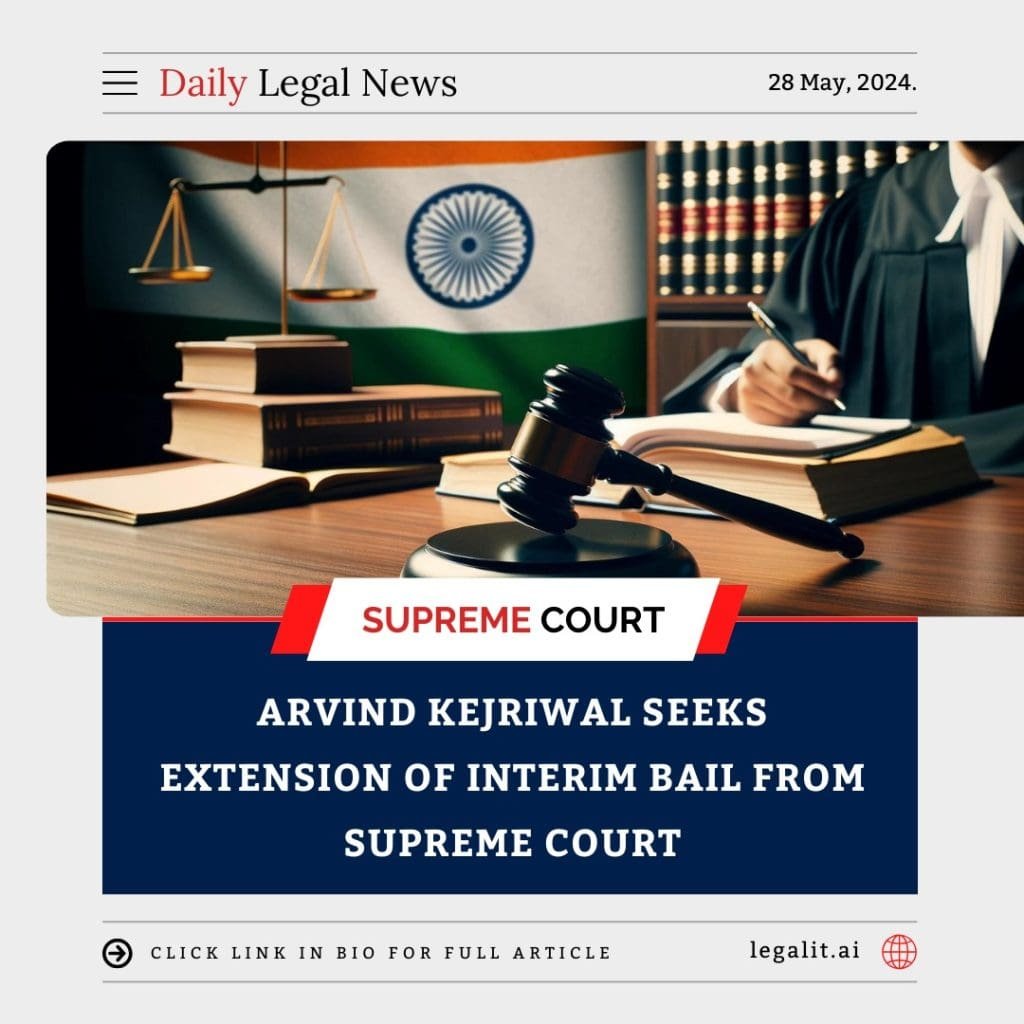
Delhi Chief Minister Arvind Kejriwal has filed a plea in the Supreme Court seeking an extension of his interim bail by one week. This request comes after the Supreme Court had initially granted him interim bail until June 1, 2024, to allow him to campaign for the ongoing Lok Sabha elections【512†source】【513†source】.
Background of the Case
Kejriwal was arrested by the Enforcement Directorate (ED) on March 21, 2024, in connection with the Delhi liquor policy case. The ED has alleged that Kejriwal and other Aam Aadmi Party (AAP) members were involved in money laundering linked to the now-scrapped excise policy for 2021-22. The policy was accused of promoting cartelization and benefiting ineligible license holders, leading to significant financial irregularities【511†source】【514†source】.
Supreme Court’s Interim Bail Decision
The Supreme Court, acknowledging the extraordinary circumstances due to the ongoing general elections, granted Kejriwal interim bail. This decision allowed him to participate in the election campaign, but with specific conditions, including the stipulation that he cannot perform official duties as Chief Minister during the bail period to prevent any undue influence on government work【512†source】【514†source】.
Request for Extension
In his plea for extending the interim bail, Kejriwal has cited the need for additional time to complete his campaigning efforts. The Supreme Court had previously indicated that it would review the necessity of further bail based on the evolving circumstances of the case and Kejriwal’s compliance with the bail conditions【511†source】【514†source】.
Implications
The decision on whether to extend the interim bail will have significant implications for both Kejriwal’s legal strategy and his political campaign. It underscores the judiciary’s balancing act between ensuring legal accountability and facilitating democratic processes.